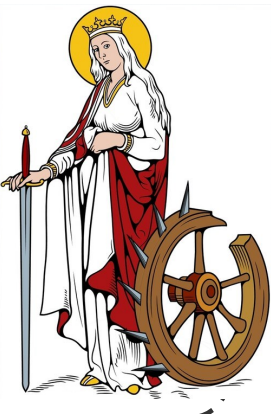










In his disputes with the Emperor Auxentius, Ambrose coined the principle: “The emperor is in the Church, not above the Church.” He publicly admonished Emperor Theodosius for the massacre of 7,000 innocent people. The emperor went on to do public penance for his crime. This was Ambrose, the fighter sent to Milan as Roman governor, and chosen while yet a catechumen to be the people’s bishop.
There is another side of Ambrose - which influenced Augustine, whom Ambrose converted. Ambrose was a passionate little man with a high forehead, a long melancholy face, and great eyes. We can picture him as a frail figure clasping the codex of sacred Scripture. This was the Ambrose of aristocratic heritage and learning.
Augustine found the oratory of Ambrose less soothing and entertaining but far more learned than other contemporaries. Ambrose’s sermons were often modelled on Cicero, and his ideas betrayed the influence of contemporary thinkers. He had no scruples in borrowing at length from pagan authors. He gloried in the pulpit in his ability to parade his spoils - “gold of the Egyptians” - taken over from the pagan philosophers.
His sermons, his writings, and his personal life reveal him as an otherworldly man involved in the great issues of his day. Humanity for Ambrose was, above all, spirit. In order to think rightly of God and the human soul, the closest thing to God, no material reality at all was to be dwelt upon. He was an enthusiastic champion of consecrated virginity. The influence of Ambrose on Augustine will always be open for discussion.









